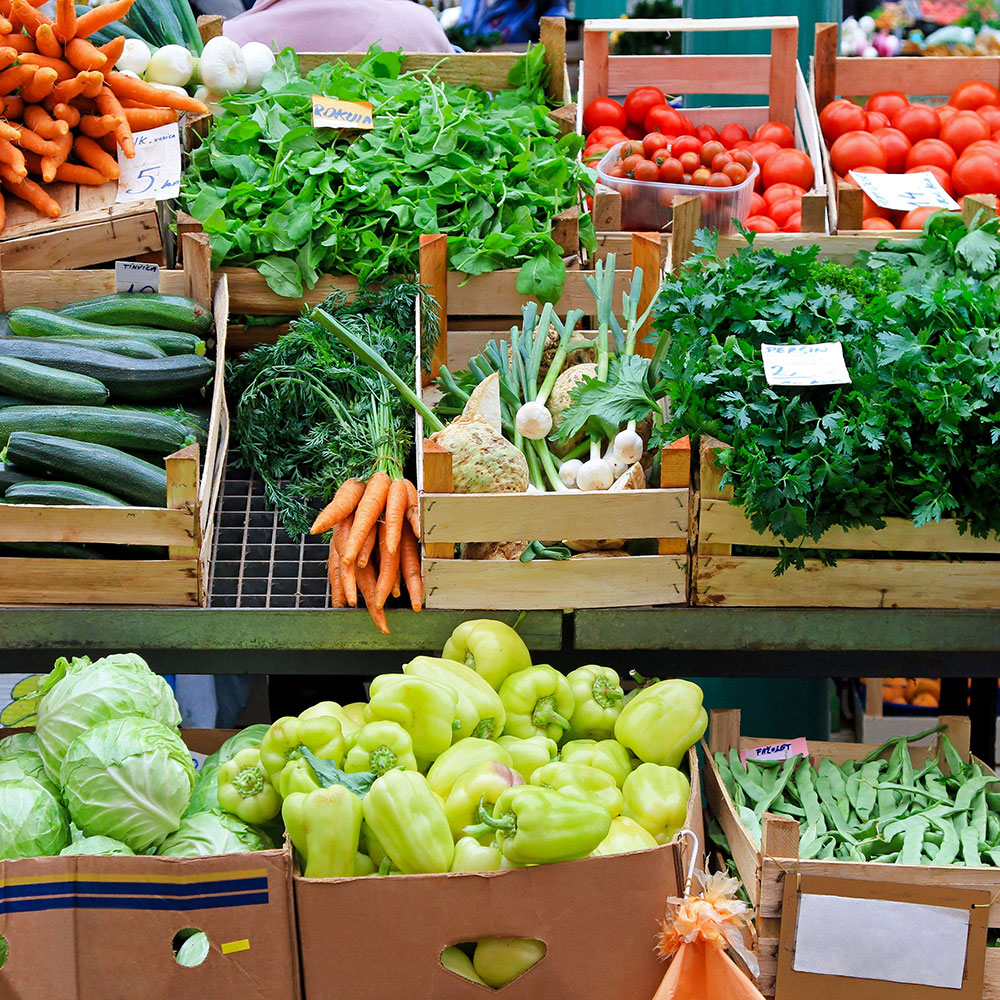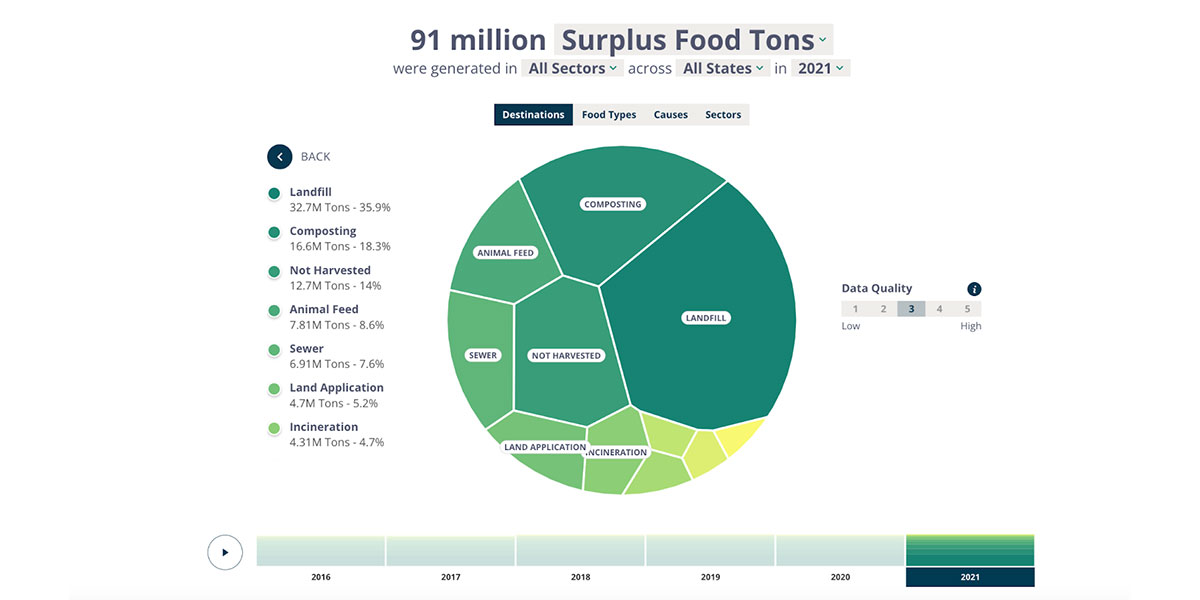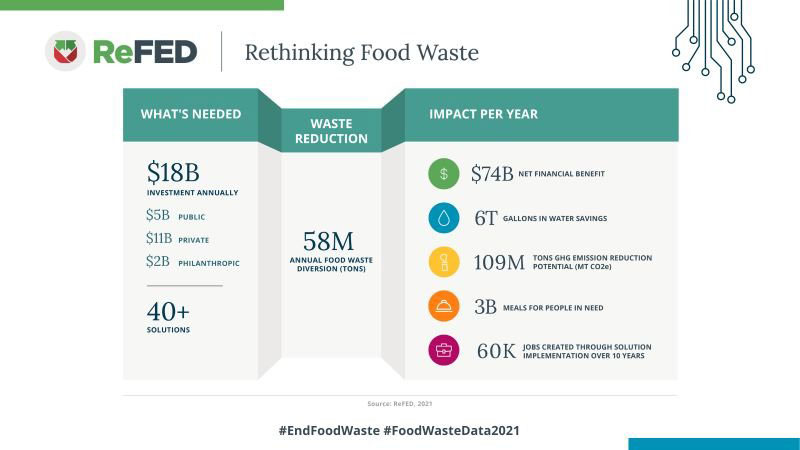ReFED recently updated its one-of-a-kind Insights Engine to improve the quality and confidence of the data used to measure both the problem and solutions of wasted food in the US.
Our team attended “Measuring Food Waste: New Estimates, New Insights, New Opportunities” Webinar to learn about its updated 2021 and 2020 food waste data. ReFED has diligently worked to calculate more accurate estimates of food waste in the US and the environmental impacts insinuated, such as food wasted, wasted food destinations, GHG produced, and water used. This data is a breakthrough for our work at LFV and the climate crisis as a whole. Here are our key takeaways from the session.
Using over 80 data sources, ReFED improved assumptions of 21 solutions, improved GHG emission factors, and received new, more current retail data to come to these conclusions through certain methodology. The numbers are shocking considering the estimates from 2019. While the waste itself did not have a significant increase, the 2021 estimates are 20M tons higher in total than projection (+12%) with 15M tons surplus from residential (+30%) than the estimates from 2019.
The current estimates come in with 91 million surplus tons of food generated in all sectors in the US in 2021. That is 38% of total food supply. Less than 2% of that 38% is donated. About 22% of that 91 million was inedible- food scraps, bones, peels, etc. All sectors include farm (produce only), food service, manufacturing, retail, and residential. The sector with the greatest impact was residential, accounting for almost 50% of food waste in the US.
With these new estimates, analysts were able to determine the changes necessary to divert these environmental harms. By 2030, we need annual investments of $18B in order to have waste reduced by 58 Million tons. These annual investments will create a $74B net financial benefit, save 6 trillion gallons of water, 109M tons of GHG, 4B meals for people in need, and 60,000 jobs through solution implementation. According to this data, the greatest change that needs to happen is with reshaping consumer behaviors. Given that a majority of food waste is produced by households, fostering consumer education campaigns, according to ReFED, would create a net financial benefit of almost $16B.
The EPA has also been doing intense research on food waste in the US, but the numbers between ReFED and the EPA have significant differences. The great reason for this difference is that they do not have farm loss data as that is moreso under the FDA’s umbrella rather than the EPA’s. The differences in these datasets include 40% of food waste coming from the residential sector as opposed to ReFED’s estimated 48.8%. Another example is ReFED’s landfill destination estimate is 35.9% while the EPA’s is 60%. A sliver of hope expressed was also that there is progress being made that cannot be incorporated into these datasets, like the legislation being created for environmental protection, including decreasing food waste, or companies that are taking strides in the direction of lessening food waste and upcycling foods.
There is no mandated recording of this information– no industry or residence is required to measure how much food they are wasting or track where it directly ends up– therefore making this information difficult to estimate. Sure, the difference in the numbers matter, but it is, according to representatives from ReFED and the EPA, far more important to recognize that these numbers are far too high and need to significantly decrease by 2030. Systemic change is of severe importance to drastically change these food waste numbers and protect our climate, and it is as easy as starting with reshaping your household’s relationship with food.
To dive deeper into this information and learn more, check out the ReFED Insight Engine.


